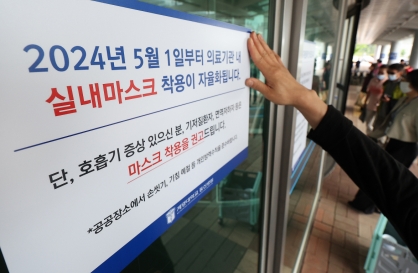Korea saw a record high level of capital invested in short-term financial instruments as dim outlooks on the economy made investors reluctant to invest in assets with long maturities.
Short-term investments ― floating capital that can be immediately transferrable ― in financial products such as securities accounts, repurchase agreements and money market funds amounted to a record 666 trillion won ($617 billion) in December 2012, according to data from the Bank of Korea and Korea Financial Investment Association.
In 2011, floating capital reached 650 trillion won, a level similar to the 653 trillion won in 2010.
Investors have been increasingly storing their funds in instruments with short-term maturities since the global financial crisis of 2008, which led global central banks to lower their key rates.
Low benchmark interest rates, which in turn make banks offer lower rates on deposit accounts, coupled with the real estate slowdown are leaving investors with little choice but to allocate their money into short-term assets.
Korean banks offer an average 3 percent interest rate on annual deposits, taking into account the central bank’s key base rate of 2.75 percent.
Investors’ increasing tendency to hold onto cash has also contributed to the rise in floating capital, with cash deposits reaching a record 44 trillion won as of the end of last year.
Also, the local stock market has not been attractive for investment due to increased volatility on a weak yen.
Seoul shares, whose returns generated minus 1.76 percent in January, have been prone to a weak yen policy in Japan where a number of exporters directly compete with Koreans overseas, compelling foreign investors to shun local equities.
Korea Investment & Securities said in an analysis report that the Korean stock market has shown to be “decoupling (with other markets) mostly due to the sensitivity of the foreign exchange.”
Analysts said Japan’s yen is bound to depreciate further as the Group of 20 financial policymakers refrained from criticizing Japan of its weak currency policy.
By Park Hyong-ki (hkp@heraldcorp.com)
Short-term investments ― floating capital that can be immediately transferrable ― in financial products such as securities accounts, repurchase agreements and money market funds amounted to a record 666 trillion won ($617 billion) in December 2012, according to data from the Bank of Korea and Korea Financial Investment Association.
In 2011, floating capital reached 650 trillion won, a level similar to the 653 trillion won in 2010.
Investors have been increasingly storing their funds in instruments with short-term maturities since the global financial crisis of 2008, which led global central banks to lower their key rates.
Low benchmark interest rates, which in turn make banks offer lower rates on deposit accounts, coupled with the real estate slowdown are leaving investors with little choice but to allocate their money into short-term assets.
Korean banks offer an average 3 percent interest rate on annual deposits, taking into account the central bank’s key base rate of 2.75 percent.
Investors’ increasing tendency to hold onto cash has also contributed to the rise in floating capital, with cash deposits reaching a record 44 trillion won as of the end of last year.
Also, the local stock market has not been attractive for investment due to increased volatility on a weak yen.
Seoul shares, whose returns generated minus 1.76 percent in January, have been prone to a weak yen policy in Japan where a number of exporters directly compete with Koreans overseas, compelling foreign investors to shun local equities.
Korea Investment & Securities said in an analysis report that the Korean stock market has shown to be “decoupling (with other markets) mostly due to the sensitivity of the foreign exchange.”
Analysts said Japan’s yen is bound to depreciate further as the Group of 20 financial policymakers refrained from criticizing Japan of its weak currency policy.
By Park Hyong-ki (hkp@heraldcorp.com)




![[Music in drama] Rekindle a love that slipped through your fingers](http://res.heraldm.com/phpwas/restmb_idxmake.php?idx=644&simg=/content/image/2024/05/01/20240501050484_0.jpg&u=20240501151646)

![[New faces of Assembly] Architect behind ‘audacious initiative’ believes in denuclearized North Korea](http://res.heraldm.com/phpwas/restmb_idxmake.php?idx=644&simg=/content/image/2024/05/01/20240501050627_0.jpg&u=20240502093000)



![[KH Explains] Will alternative trading platform shake up Korean stock market?](http://res.heraldm.com/phpwas/restmb_idxmake.php?idx=644&simg=/content/image/2024/05/01/20240501050557_0.jpg&u=20240501161906)







![[Today’s K-pop] Stray Kids go gold in US with ‘Maniac’](http://res.heraldm.com/phpwas/restmb_idxmake.php?idx=642&simg=/content/image/2024/05/02/20240502050771_0.jpg&u=)